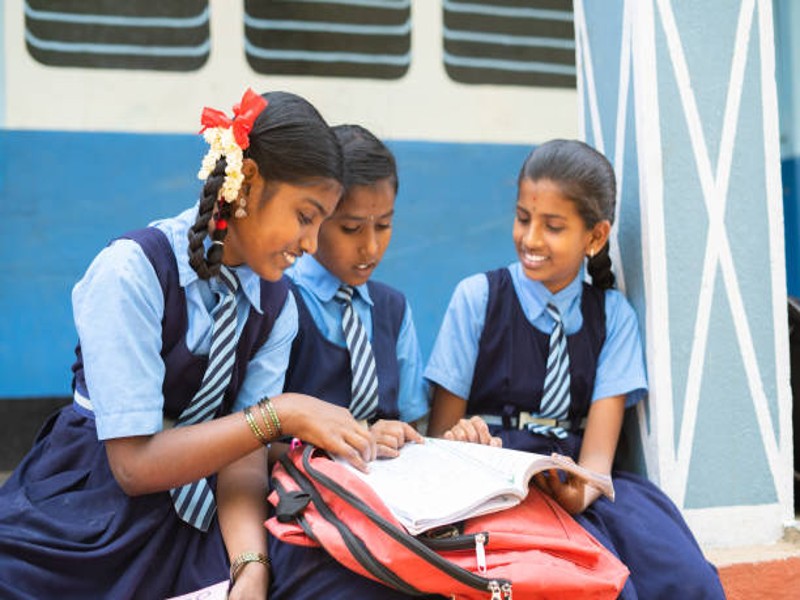– Mita Mukherjee
A section of school teachers, academics and social activists in Madhya Pradesh have decided to launch a strong movement against the state government’s initiative to merge and close state schools located within 10 to 15 km radius under the state’s CM Rise Schools scheme.
The movement is being planned as the merger is viewed as a move to gradually hand over school education to private operators in the name of upgrading the state’s school education system. Many teachers’ bodies are extending support to the movement because according to them as per an estimate the scheme if implemented all over the state can render several thousand teachers jobless.
As per the plan taken up by the government three years ago, through the CM Rise School scheme, the state aims to impart education to students of state-aided schools at par with boards like the Central Board of Secondary Education (CBSE) and Indian Council for the Indian School Certificate Examination (CISCE).
Under the CM Rise School initiative, the government plans to set up new schools with world-class buildings, modern facilities such as well-equipped laboratories, smart classrooms, digital teaching facilities, extra-curricular activity facilities and provisions to offer external exposure to students like debates and other inter-school activities and excursions.
Sachin Jain, state secretary of the Madhya Pradesh chapter of Save Education Committee, an organisation of academics and teachers said though the government has said that the idea is to uplift the standard of school education, its main intention is to promote privatisation of education which is bound to deprive children coming from poor families and far-flung rural areas of right to education.
“There is no doubt that the standard of education in state schools is declining. The schools do not have proper infrastructure facilities. Thousands of schools do not have adequate teachers and many schools are run by a single teacher. Enrollment in many schools has drastically fallen and many schools have no students. Most parents are forced to educate their wards in the private schools. But the merger and closure policy adopted by the government is not the solution. This move of the government actually aims to promote private school operators,” Jain told EducationWorld.
There were around 1,25,000 state schools in 2015, a source in the government said. After the launch of the new scheme, the number of such schools has reduced to 94,039.
The government’s plan is to have approximately 10,000 schools after the completion of the CM Rise School scheme. According to the government’s plan, all the 10,000 schools will be run under public-private partnership (PPP) model, according to Jain.
Even a few years ago, the number of total enrolment in the state schools was nearly one crore, Jain said. The total enrolment has come down to 70 lakh at present after the implementation of merger and closer scheme.
“The aim of the government is to have 10,000 schools under the new scheme. How many students can avail education in these schools?” Jain asked. “Therefore, it is clear that a large number of parents will be forced to educate their wards in the private schools. This is what the government wants to promote,” said Jain.
“Thousands of students coming from poor families will be exposed to many difficulties because of the merger and closure of government schools. Students of CM Rise schools are required to pay Rs 6000 to 7000 per year which is much higher than the previous fees. There will be no rise of education because many students of poor families will not be able to continue their education,” said Tarun Kanti Naskar, all India secretary of the organisation.
A teacher of a state-run school on condition of anonymity said that the government’s plan to set up a school at a radius of 15 km will offer an opportunity to private schools to attract more students. The worst hit would be parents of girl students.
“Many parents would not want to send their children to schools located 15 km away for security reasons. They would prefer educating their children in a nearby private school,” said the teacher.
Another teacher said at a time when the idea should be to promote inclusivity in education, the scheme undertaken by the government may lead to a situation in which students coming from rural and economically backward families may face exclusion.
In a bid to create an awareness about the impact of the CM Rise School scheme, the Save Education Committee held a convention at Guna district in Madhya Pradesh where teachers, academics and social activists engaged in education sector discussed the effects of the new scheme and decided to launch an intense movement across the state demanding scrapping of the scheme.
However, a source in the education department said: “The only intention of the government is to ensure high standard education to every student from each and every school. There will be no shortage of any school anywhere in the state.”
Also read:
Woxsen University announces scholarships for 2025 MBA admissions
